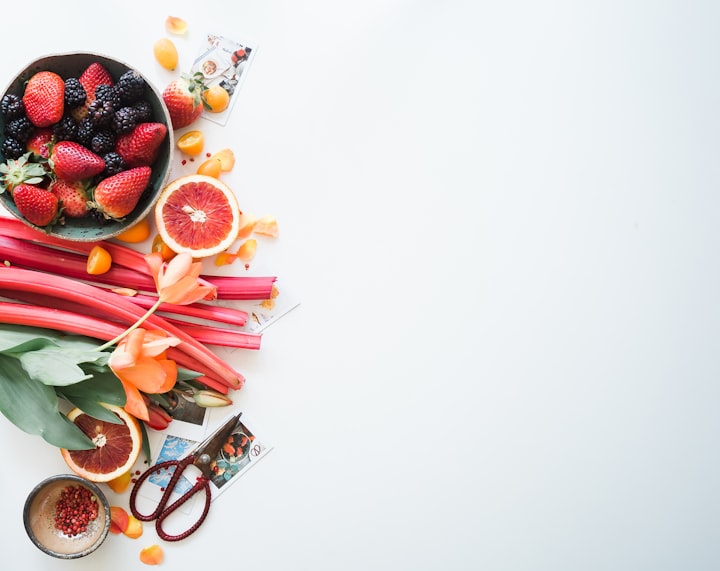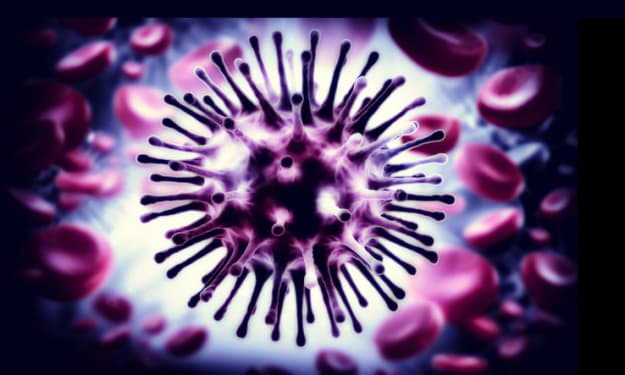
Your heart plays a key role in your overall health. It's the main organ in your cardiovascular system, making it responsible for moving blood throughout the body, controlling your pulse rate and maintaining your blood pressure. You might be wondering, since the heart is such a vital organ, how can we keep it healthy? Turns out, your diet has an important job.
Everyone from the American Heart Association to the US Department of Health and Human Services recommends making specific food choices to support a healthy heart. Because foods for heart health can reduce other potential cardiovascular issues -- like high blood pressure and high cholesterol -- it's worth keeping that in mind as you plan your weekly meals.
Keep reading to find out what foods to look for, what foods you're probably already eating and what a heart-healthy diet looks like overall.
What is a heart-healthy diet?
Studies have revealed two things: foods that are riskier for your heart and foods that strengthen it. Fortunately, you're not about to get hit with a bunch of curveballs. The best foods for heart health are ones you probably already think of as healthy. Similarly, the not-so-heart-healthy foods are probably already on your radar for not doing your body any favors.
Before we dive in here, let's say: everything in moderation. Unless you already know you have a heart health issue, you don't need to cut out any foods or make drastic changes. We're not saying you can never have another piece of bacon or crack open another soda. Instead, being mindful of what a heart-healthy diet looks like can help you incorporate more of those foods into your meals.
Now, let's talk details. According to the AHA and Department of Health, a heart-healthy diet is rich in:
• Produce
• Lean proteins
• Fiber-rich complex carbs
• Healthy fats
A diet full of colorful fruits and vegetables, whole grains and healthy proteins and fats will give your body the fiber, vitamins and minerals it needs to support a healthy heart.
Conversely, if you're trying to boost cardiovascular health, you want to limit your intake of:
• Trans fats
• Saturated fats
• Processed meats (for example, lunch meat, salami and hot dogs)
• Excess salt
• Excess sugar
• Refined carbohydrates (for example, white breads and snacks)
• Red meat
• Excess alcohol
If a lot of your favorites are on the less heart-healthy list, don't panic. You can still include them in your diet (unless your doctor says otherwise). Just make sure that these foods aren't taking over every meal, and try to add as many heart-healthy foods into your day as you can.
Heart-healthy foods
If you want to feel good about what your next grocery trip will do for your heart health, you can grab items in these specific categories.
1. Fruits and vegetables
Remember the food pyramid from back in the day? It was on to something. Your body benefits from eating quite a bit of produce.
That's because veggies and fruit load in a lot of nutritional density per bite. Bananas and sweet potatoes deliver potassium, a key mineral for heart health. Cruciferous veggies may help to prevent clogged arteries. Leafy greens deliver fiber, which can help to lower cholesterol and blood pressure.
Long story short, the more produce you're packing in, the better. And if fresh produce doesn't work for your budget or your lifestyle, don't worry. You can get plenty of nutritional benefits from frozen, dried and canned options. Just make sure they're marked low-sodium.
2. Whole grains
Not all carbs are bad. Refined carbs like the ones in white bread fly through your body, usually doing you more harm than good. But complex carbohydrates, like the ones you'll find in whole grain products, deliver fiber, which we've already mentioned as a heart health booster.
Plus, they often come packed with vitamins and minerals like iron, selenium, thiamin (vitamin B1), riboflavin (vitamin B2), niacin (vitamin B3), folate (vitamin B9) and magnesium. If you're looking for a heart-healthy diet, choose products that have whole grains in their ingredient list. Plus, complex carbs can also be found in beans, potatoes, peas and corn.
3. Lean and plant protein
While certain proteins -- like red and processed meat -- can be hard on your heart, others top the list of foods for heart health. The key here is to look for plant-based protein, lean animal proteins and fish. Experts recommend mixing up your protein sources. So you have plenty of options, stock up on:
• Lentils
• Beans
• Nuts
• Seeds
• Tofu
• Fish, especially ones high in omega-3 fatty acids
• Eggs
• Low-fat dairy products
• Poultry
• Seeds
Swap some of your red meat and cured pork for the options above and you'll be doing your heart a favor.
4. Healthy fats
You might think that fat spells heart trouble, but it's all about the type of fat. While trans and saturated fats have been linked to cardiovascular issues in numerous studies, your body, including your heart, needs healthy fats. You can get these from fish, nuts and seeds, along with avocados and moderate amounts of plant oils like:
• Olive oil
• Sesame oil
• Sunflower
• Soybean oil
• Canola oil
• Corn oil
• Safflower oil
As a general rule of thumb, if the fat would be solid at room temp, it's probably saturated. If it would be a liquid, it most likely falls under the unsaturated variety. Think butter (controversial for health) versus olive oil (definitely part of a heart-healthy diet).
5. Heart-check foods
The American Heart Association has certified certain foods for heart health and given them the Heart-Check seal, which you can find on some food packaging. Once you learn that seal, it can make it easier to stock your cart with foods for heart health.
For the best results, pair your heart-healthy diet with other heart health boosters like regular exercise, sleep and stress management techniques. It can also be helpful to learn your blood type and what it means for your risk of specific cardiovascular conditions.
Why You Can Trust CNET
Our expert, award-winning staff selects the products we cover and rigorously researches and tests our top picks. If you buy through our links, we may get a commission. Reviews ethics statement
Wellness Nutrition
Foods that Can Help (and Hurt) When You Have High Blood Pressure
Salmon and citrus fruits like lemon are good foods to eat when battling high blood pressure.
Hypertension, or high blood pressure, develops over time from different risk factors including genetics, age, stress, lack of exercise or high salt consumption. While it's most common among older adults, young people are by no means immune to hypertension. The Centers for Disease Control and Prevention says one in four people aged 20 to 44 has high blood pressure, which puts you at higher risk of serious health conditions like a heart attack or stroke.

A high blood pressure reading is a systolic pressure (how much pressure your blood exerts against your artery walls when your heart beats) of 130 and higher or a diastolic pressure of 80 and higher. It's important to remain informed on your blood pressure and seek treatment if you're experiencing hypertension. Prescription medicines can help regulate it, but you can also naturally lower your blood pressure by living a healthy lifestyle and eating a more nutritious diet.
Here are seven types of food you should incorporate into your meals to help control high blood pressure.
For more ways your diet can help improve your health, here are seven foods to help with sleep and 13 foods for healthy kidneys.
Best Meal Kit Delivery Service
Best foods for high blood pressure
Here are our favorite best foods for keeping your blood pressure in check.
Fruits
• Berries are high in antioxidants -- including anthocyanins, which are water-soluble pigments responsible for red, blue and purple. They give the fruits their bright color and help lower blood pressure.
• Citrus fruits like oranges and lemons are great sources of vitamins and minerals and can aid in high blood pressure. One five-month-long study with 101 women showed that daily lemon intake combined with walks could effectively lower systolic blood pressure.
• Bananas are chock-full of potassium which reduces sodium levels in your body, a trigger for high blood pressure.
• Pomegranate juice can improve heart health and has anti-hypertensive effects on systolic and diastolic pressures (the pressure your blood exerts on the artery walls when your heart rests).
Vegetables
Leafy greens and red beets contain significant nitrate levels, which are converted to nitric oxide. Nitric oxide dilates the blood vessels and improves circulation, easing high blood pressure. One study found that a high vegetable nitrate intake was linked to lower systolic and diastolic blood pressure.
Leafy greens high in nitrate include:
• Spinach
• Swiss chard
• Kale
• Romaine lettuce
• Cabbage
• Turnip greens
Carrots, celery and broccoli are also helpful in regulating heart health and controlling high blood pressure. Carrots and celery help reduce inflammation and calm blood vessels, while broccoli is full of antioxidants that raise your body's nitric oxide levels.
Dairy
A bowl of yogurt is a good breakfast or snack for people with high blood pressure.
wilatlak villette/ Getty Images
Dairy products like yogurt have proven to help lower blood pressure, presumably because of their high levels of nutrients such as calcium and potassium -- a study involving 150,000 participants associated dairy with a lower risk of diabetes and blood pressure.
Nuts and seeds
• Pistachios are high in potassium and have proven to be a strong aid for healthy SDP and DBP.
• Unsalted sunflower seeds, flaxseeds, chia and pumpkin seeds are also full of potassium and other nutrients like magnesium and fiber, which can help lower blood pressure.
Protein
Lean beef, pork, chicken and fatty fish are good proteins to help promote healthy blood pressure. Fatty fish like salmon are loaded with omega-3 fats, and high levels of this healthy fat are associated with lower SBP and DBP. Healthy fats can reduce inflammation in the body that damages blood vessels, helping prevent high blood pressure.
Dark chocolate
For those with a sweet tooth, the cocoa inside dark chocolate contains flavonoids that increase nitric oxide levels and help lower blood pressure.
Extra-virgin olive oil
Cook with extra-virgin olive oil, the least processed oil and one of the best for anti-hypertension. It has an antioxidant polyphenol and a fatty acid that help maintain a healthy heart.
Foods to avoid
1. Sodium: It's common for your doctor to limit your sodium intake when you have high blood pressure. Sodium promotes water retention, which increases blood volume, resulting in higher blood pressure and stress on the blood vessels. Examples include condiments, sauces, bacon, sausage, deli meats, canned foods like soups and vegetables, and packaged or microwavable meals.
2. Fried foods: Sodium and saturated fats in fried foods aren't good for healthy blood pressure. Steaming or baking your foods are better, healthier alternatives.
3. Red meat: Research suggests you should eat no more than 1.25 ounces of red meat daily (around the size of your palm) as it is a known culprit for high blood pressure. Remember, beef isn't the red meat source. Pork, lamb, veal, venison and goat are also considered red meats.
4. Alcohol and caffeine: Drink alcohol and caffeine in moderation. Drinking in excess on a daily basis (two drinks for men and one for women) can result in serious risks like hypertension or a stroke. Caffeine can also contribute to increased blood pressure.





Comments
There are no comments for this story
Be the first to respond and start the conversation.